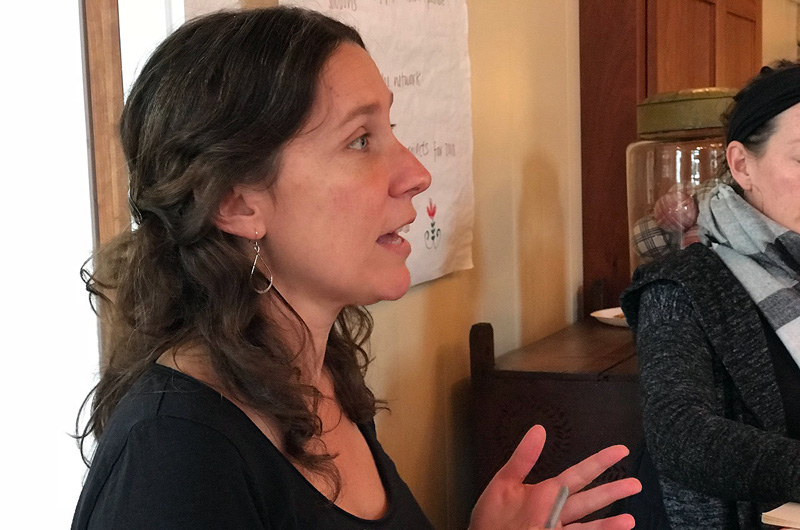In every town on Martha’s Vineyard, a growing number of seniors at risk of food insecurity are relying on social services to keep them from going hungry.
“There’s no place I don’t bring meals,” said Michele Dupon, nutrition coordinator and care manager for ElderServices of Cape Cod and the Islands, which last year delivered 48,000 meals to Islanders over 60 years old through the Meals on Wheels program.
“It’s just steadily increasing,” Ms. Dupon said. “We probably average between 30 and 60 new people a year.”
The Island’s elderly population is “exploding,” said Leslie Clapp of the Martha’s Vineyard Center for Living, which serves local seniors with an emphasis on those who are more frail and losing their memories to age or dementia.
“We are also seeing a huge increase in folks in need of services to help them support their loved ones at home,” Ms. Clapp added. “Most of the time, a senior’s caregiver is also elderly, and they’re in trouble. By the time we find them, or they find us, they have long since needed some intervention and some assistance.”
Ms. Dupon and Ms. Clapp were among two dozen Islanders who gathered in a private West Tisbury home last Thursday for a summit meeting of the Martha’s Vineyard Food Equity Network.
“We are a loose affiliation of people who care about getting good, healthy food to people,” said Rebecca Haag, executive director of Island Grown Initiative, who with IGI’s community food education director Noli Taylor took the lead in gathering local service, business and community leaders to create the network in 2016.
The group can point to several achievements already: last year’s Food Equity Summit resulted in a pilot summer lunch program for school-age children; a mobile farm market serving low-income neighborhoods with affordable Island produce; and an online, interactive map showing all the places and times that free and low-priced food is available on Martha’s Vineyard.
For 2018, network members agreed Thursday, their focus will be on the needs of Island seniors — a very different challenge from helping hungry children, more than one participant observed.
“The same strategies that work for kids may not work for elders,” said Ms. Haag, moderating the discussion. “What more could we do, not just to provide food to them but to help them be part of the community, in a way that’s respectful?” she asked.
“Seniors don’t like to ask for help,” cautioned Island Food Pantry director Margaret Hanneman. “We need to keep that in our head.”
In many cases, seniors’ needs go far beyond a daily meal. It’s not unusual to find overwhelmed elders in a dilapidated home where the utilities have been shut off, Ms. Dupon said.
Elderly, homebound Islanders are often lonely and isolated, with a Meals on Wheels volunteer the only visitor one might see. But with a schedule to keep — 80 volunteers serve 10 routes, making up to 30 stops in three hours — “they don’t have time to socialize,” Ms. Dupon said.
Still, while older Islanders may still hold to the self-reliant Yankee way, Ms. Dupon observed that Baby Boomers “are not having any trouble asking for help. Anybody under 70 has no problem [asking] ‘What other services can I get?’”
Reluctant or not, Island seniors face other obstacles. Many lack access to affordable transportation, which keeps them away from community suppers, senior dining programs and other opportunities for food and companionship. And they’re unlikely to have computers or smartphones to keep up with local events and services online.
On Thursday, network members targeted three main areas to work on: connecting seniors with adequate, healthy food; making socialization a part of the mix; and improving marketing and communication to Island elders.
As with last year’s Food Equity Summit, three subcommittees will bring back their findings and recommendations in early 2018. Suggestions from the second summit ranged from organizing volunteers to deliver groceries from the Food Pantry and Serving Hands programs to setting up a “buddy” or “adopt-a-grandparent” system for Island elders.
“I think there’s enough brain power and will power here to really get things done,” Ms. Clapp said.








Comments (1)
Comments
Comment policy »